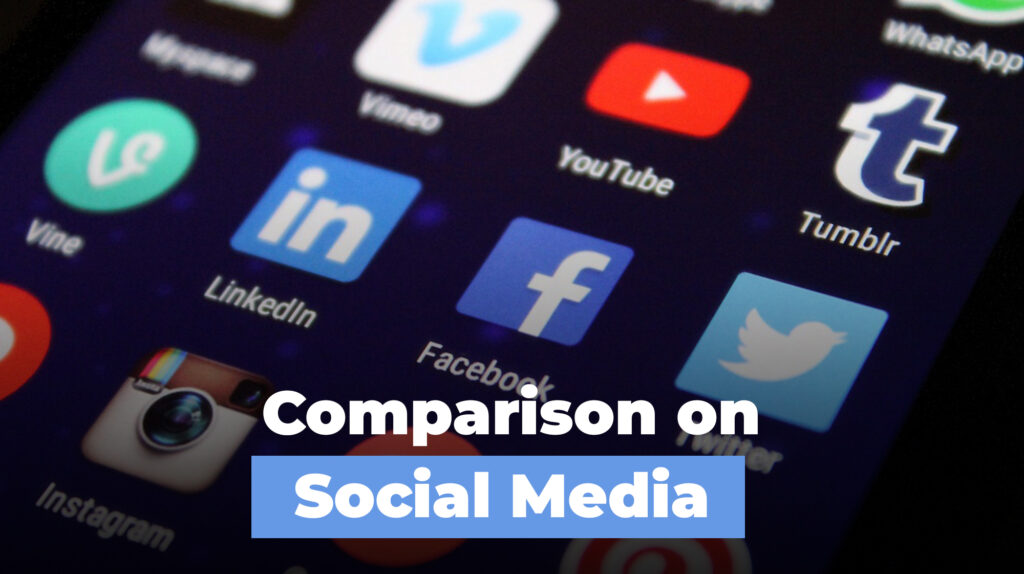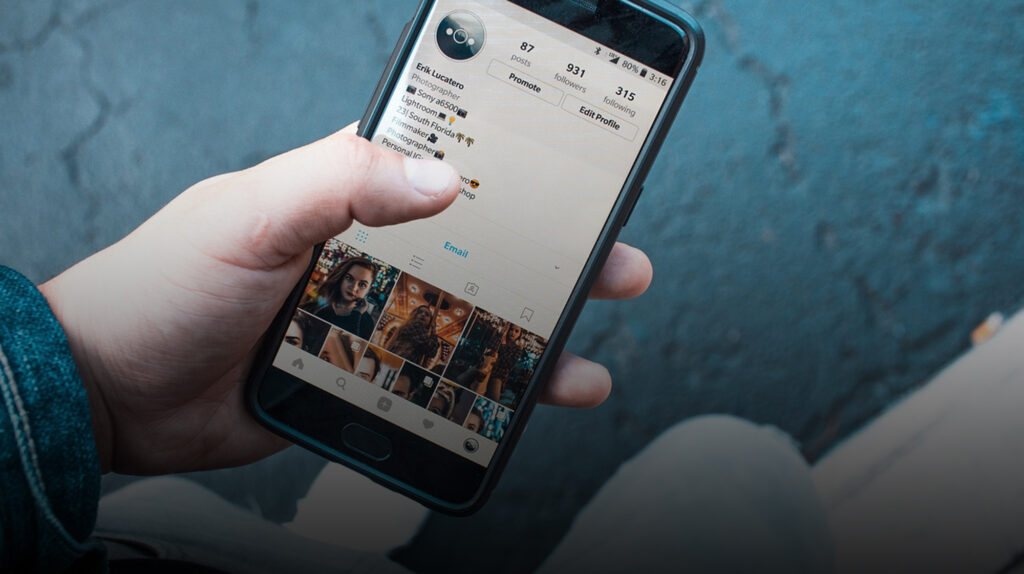
“Social media platforms like Instagram, Facebook, and Twitter have changed how we interact with the world. These platforms have become a big part of our daily lives, shaping how we connect, share experiences, and consume content. However, comparison on social media has also become more common, influencing how we perceive ourselves and others.”
While social media can be a great source of inspiration and connection, it also encourages comparison. We often compare our lives, looks, and achievements to what we see online. This habit can affect our mental health, sometimes in positive ways but often in negative ones.
This blog explores how comparison on social media influences our mental well-being, content consumption, and relationships. It also shares simple strategies to reduce the negative effects of social comparison.
The Nature of Social Comparison
Social media has made comparison easier and more intense. Before social media, people compared themselves to those they met in person. Now, we compare ourselves to thousands of people online, many of whom we don’t even know.
Why Do We Compare Ourselves to Others?
- Curated Content: People only post the best parts of their lives, hiding struggles and failures. This makes their lives look perfect, even when they are not.
- Filters and Editing: Photos and videos are often edited, making people look better than they do in real life.
- Highlight Reels: People share big achievements but rarely post about their struggles. This creates an illusion of constant success.
When we see these perfect images and stories, we may feel that our own lives are not good enough. This leads to self-doubt, low self-esteem, and even anxiety.
Why Social Comparison Affects Us

1. It Impacts Self-Worth
Young people, especially teenagers, are more likely to compare themselves to influencers and celebrities. Seeing people with “perfect” lives can make them feel inadequate. This affects how they see themselves and their value.
2. It Reinforces Unrealistic Standards
Both men and women face different pressures on social media. Women are often judged based on beauty, while men feel pressure to show success and strength. These unrealistic standards make people feel like they are not good enough.
3. It Creates a Need for Validation
Likes, comments, and shares make people crave approval. If a post does not get enough engagement, people may feel rejected. This cycle of seeking validation can harm mental health.
4. It Leads to Anxiety and Depression
Studies show that constantly comparing yourself to others online can increase anxiety and depression. Seeing other people’s “perfect” lives can make you feel like you are missing out or not achieving enough.
The Mental Health Effects of Social Comparison
1. Low Self-Esteem
When you constantly compare yourself to others, you may feel less confident about your own life. You focus on what you lack instead of appreciating what you have.
2. Body Image Issues
Social media promotes unrealistic beauty standards. Seeing flawless pictures can make people feel insecure about their own appearance. This can lead to unhealthy habits, such as extreme dieting or excessive exercising.
3. Fear of Missing Out (FOMO)
People often feel left out when they see others having fun or achieving success. FOMO creates stress and makes people feel like they are not doing enough in their own lives.
4. Increased Stress and Anxiety
Feeling pressured to keep up with others can lead to stress. People may push themselves too hard just to match what they see online, leading to burnout.
Tips to Manage Social Comparison
Social media does not have to be harmful. By using it wisely, you can protect your mental health and enjoy the benefits it offers.
1. Identify Your Triggers
Pay attention to how social media makes you feel. If certain accounts or types of content make you feel bad about yourself, consider unfollowing or muting them.
2. Limit Your Social Media Time
Spending too much time on social media can make comparisons worse. Set limits on your usage. Research shows that reducing screen time to 30 minutes a day can improve mental well-being.
3. Follow Positive Accounts
Choose to follow people who inspire and uplift you. Find accounts that share real, unfiltered experiences and promote self-love and growth.
4. Focus on Gratitude
Instead of comparing yourself to others, focus on what you are grateful for in your own life. Keep a journal and write down three things you appreciate every day.
5. Remember That Social Media is Not Reality
Most people only share the good parts of their lives. No one’s life is perfect, even if it looks that way online. Keep this in mind when scrolling through social media.
6. Take Social Media Breaks
Sometimes, stepping away from social media can help you feel better. Take breaks when needed to focus on real-life experiences and personal growth.
The Bright Side of Social Media
Although social media has challenges, it also has benefits when used mindfully.
1. It Helps Build Connections
Social media allows people to connect with friends, family, and like-minded individuals. It can strengthen relationships and create a sense of community.
2. It Encourages Self-Expression
People can share their thoughts, creativity, and passions with the world. Social media can be a platform for self-expression and empowerment.
3. It Provides Learning Opportunities
From educational content to motivational speakers, social media can be a great place to learn and grow. Following positive content can help people develop new skills and stay informed.
4. It Can Inspire and Motivate
When used correctly, social media can provide encouragement and motivation. People can find support and inspiration from those who share similar goals and struggles.
Conclusion
Social media can be both a positive and negative influence, depending on how we use it. While it can inspire and connect us, it can also lead to unhealthy comparisons and self-doubt.
By being mindful of how we engage with social media, we can protect our mental health and focus on self-growth. Instead of comparing our lives to unrealistic online images, we should appreciate our own journey.
Use social media as a tool for learning, connecting, and expressing yourself, but don’t let it define your self-worth. The key is balance—enjoy social media, but always prioritize your mental well-being and happiness.

Pingback: how to solve challenges - choosewise.info